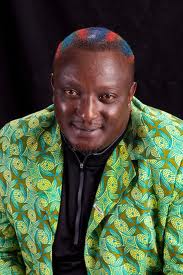
Talk to Al Jazeera sat down with Binyavanga Wainaina, one of the continent’s most influential young authors, to explore why the world is still not understanding Africa, and how to break the lens of media distortion. “I am interested in a powerful Africa, and I really mean an Africa with Power in the globe – power with capital P… where we have our say and where our say means something.” And then, oh maybe there is a good news story if you are lucky,” he says. “A significant amount of coverage, probably the vast majority of coverage on Africa by the West, reinforces the pre-existing idea … The existing narrative must be a dependent and collapsed place. Now it’s the child who needs your breast.” If you go back to the 19 th or 18 th century it was the child, the willful child that needs to be contained or controlled, or who can be enslaved. It’s that, since the 90’s in particular, but throughout the relationship between Africa and the West, that is the dominant narrative. “The question is not so much the question talking about it. Wainaina concedes that the “starving orphan” is often a reality on much of the continent, but he adds:

“The world of humanitarianism and aid in Africa is designed to keep people passive, dependent and allow power,” he tells Al Jazeera. Her children have flies on their eyelids and pot bellies, and her breasts are flat and empty. It includes lines such as: “Among your characters you must always include The Starving African, who wanders the refugee camp nearly naked, and waits for the benevolence of the West. Wainaina found worldwide acclaim through How to write about Africa, his scathing satirical essay that is a mock tip-sheet for Western journalists writing about the African continent. I am interested in a powerful Africa, and I really mean an Africa with Power in the globe, power with capital P… where we have our say and where our say means something. “ In the last five years we have seen a multipolar world come. He feels that by leaving lots of stories under-reported, misreported or reported again and again, the West perpetuates stereotypes about this multi-faceted continent. So it is the question of: What is the full picture?” Wainaina says.

“If you look at the website in Kenya of any western embassy, they talk about partnership for development and then you see a lot of school children suffering and then being helped by the ambassador. But they don’t list the companies that are operating here. It is time to change our image of Africa.Ĭritics say that for too long now, aid organisations, foreign diplomats, politicians and journalists have been stuck looking at this vast continent as a convenient photo-opportunity to illustrate victimhood and desperation.Īnd few men are more forceful in advocating a change in how we perceive Africa than Kenyan author Binyavanga Wainaina.


 0 kommentar(er)
0 kommentar(er)
